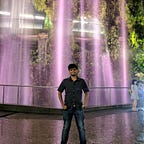The Grand Hotel Paradox
Infinity is one of those concepts that we think we understand, but most (all?) of us can’t actually wrap our minds around. German mathematician David Hilbert created a thought experiment called the Grand Hotel paradox to demonstrate the absurd complexity of infinity.
It is demonstrated that a fully occupied hotel with infinitely many rooms may still accommodate additional guests, even infinitely many of them, and this process may be repeated infinitely often. The key in this thought experiment is the notion of countably infinite.
A set is countably infinite if its elements can be put in one-to-one correspondence with the set of natural numbers. In other words, one can count off all elements in the set in such a way that, even though the counting will take forever, you will get to any particular element in a finite amount of time.
The Paradox
Consider a hypothetical hotel with a countably infinite number of rooms, all of which are occupied. One might be tempted to think that the hotel would not be able to accommodate any newly arriving guests, as would be the case with a finite number of rooms, where the pigeonhole principle would apply. The key to this paradox demonstrated in the cases below is:
There may not be a last room, but there’s always a next room…
Case 1: Finitely many new guests
We can (simultaneously) move the guest currently in room 1 to room 2, the guest currently in room 2 to room 3, and so on, moving every guest from his current room n to room n+1. After this, room 1 is empty and the new guest can be moved into that room. By repeating this procedure, it is possible to make room for any finite number of new guests.
Case 2: Infinitely many new guests
This case of having a countably infinite number of guests arriving in the hotel can be solved easily by moving the guest in room 1 to room 2, the guest in room 2 to room 4 and so on moving guests for room n to room 2n. Thus only occupying countable infinite even numbered rooms leaving countably infinite odd numbered rooms empty to be occupied by countably infinite guests.
Case 3: An Infinite number of Infinite Busses Arrives
This case is a tricky one stating that a countably infinite number of buses consisting a countably infinite number of guests arrives at the hotel. The countable infinite prime numbers come to the rescue of the challenge of accommodation.
For starters, we move the infinite set of guests currently in the hotel from their current room numbers (i.e. the natural numbers) to powers of the first prime number, 2, i.e. guest in room 1 move to room 2 (2¹), guest in room 2 moves to room 4(2²), guest in room 3 to room 8(2³) and so on..
Then we take the guests from the first bus and assign them to powers of the next prime number, which is 3, using their seat numbers as the powers. E.g. For the first bus, we move the guest from seat 1 to room 3 (3¹), the guest from seat 2 to 9(3²), and so on. For the second bus we the guest from the seat 1 to room 5 (5¹), the guest from the seat 2 to room 25 (5²) and so on. This is repeated for all countable infinite number of buses.
This solution leaves certain rooms empty, specifically, all odd numbers that are not prime powers, such as 15 or 847, will no longer be occupied.
Case 4: Further layers of infinity
With each increasing layer of infinity in the paradox, the above method of the powers of prime can be extended to the solve the problem of accommodation. Because we have an infinite set of prime numbers, theoretically we can continue using the next prime as the base for each of the countably infinite busses. And since raising the prime number to a new power produces a brand new room number, we can locate rooms for the infinite guests on each layer of infinity.
Conclusion
This thought experiment illustrates a counter-intuitive property of infinite sets. It demonstrates how infinity behaves very different from the other number. It also brings us to the conclusion that human minds still are incapable of properly perceiving the concept of infinity.
